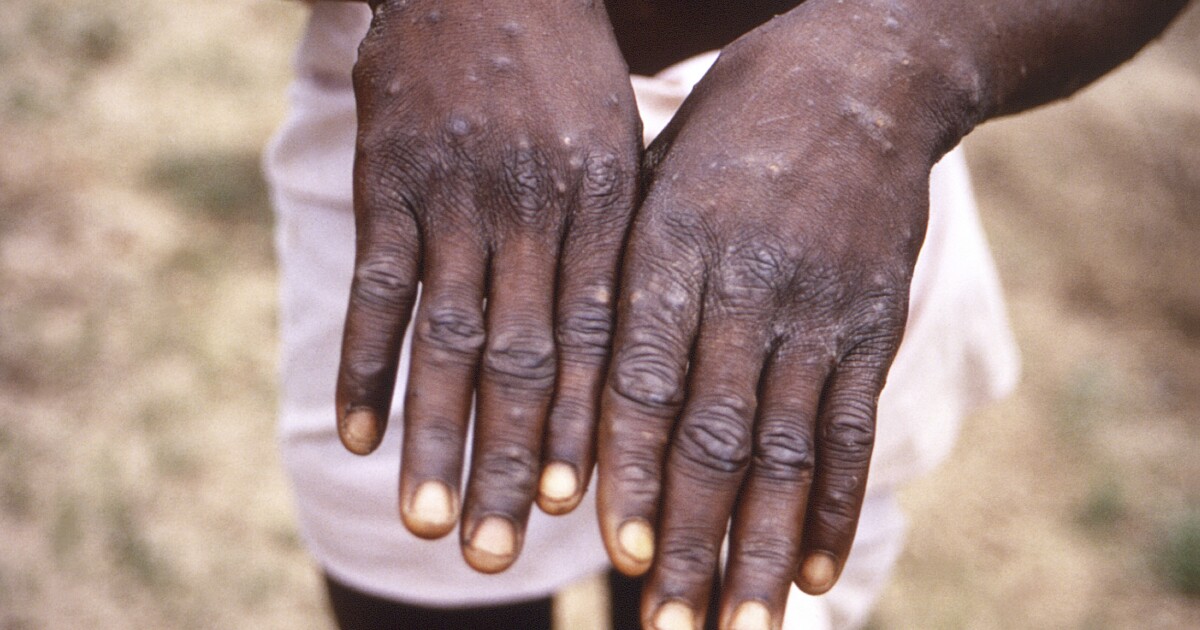

White House and Health and Human Services officials outlined plans Friday to use vaccines, outreach, testing, and treatment to fight the monkeypox outbreak, using a strategy broadly similar to that used to fight COVID-19 since the spring of 2020.
The comments came during a press call featuring the White House’s COVID-19 response coordinator, Ashish Jha; Biomedical Advanced Research and Development Authority Medical Countermeasures Program Director Robert Johnson; and Division of High Consequence Pathogens and Pathology Deputy Director Jennifer McQuiston.
US STRUGGLES TO RESPOND TO MONKEYPOX OUTBREAK
“This is not a novel virus. We’ve known about this virus for decades,” said Jha, noting one major distinction between the two outbreaks.
Another significant difference is that monkeypox is spreading mostly among men who have sex with men, or what the officials termed “MSM,” who account for upward of 99% of all cases. Part of the strategy to fight the outbreak involves communicating with leaders and groups from this specific community in an effort to educate them about the disease. However, there have been some cases that do not involve this demographic.
HHS issued a new fact sheet about the disease on Thursday, again saying it’s focused on distributing vaccines and tests, along with making treatments available for free.
Following the first U.S. case on May 18, the monkeypox outbreak has spread faster than public health authorities expected, forcing them to play catch-up by issuing the road map. But the window of dealing with monkeypox is closing, according to some public health experts.
“We could have gotten control of this if we had been more aggressive up front,” former Food and Drug Administration Commissioner Scott Gottlieb said earlier this week. “I think the window for getting control of this and containing it probably has closed. If it hasn’t closed, it’s certainly starting to close.”
Some of the largest outbreaks have been in New York City and Washington, D.C. Jha said New York now has secured enough doses of vaccines to provide an initial shot to everyone there, while Washington has enough to cover 70% of the population.
Officials are also working to slash bureaucratic barriers to getting a treatment called TPOXX, which is authorized for smallpox but not yet for monkeypox.
“We should be making sure that anybody who has monkeypox and who has pain is getting this treatment,” said Jha. “That’s why we put a lot of work in to streamline this and make it easier for physicians to order it.”
Despite these efforts, the outbreak has spread much farther than officials had hoped.
More than 2,000 cases of the virus, endemic to Central Africa, have been confirmed in the United States since May. Globally, since the early cases were detected, the virus has infected over 14,000 people in at least 60 countries.
A group of 50 House Democrats has urged the Biden administration to declare a public health emergency over monkeypox. Jha said there’s a “very active conversation” going on about it but that no final decision has been made.
CLICK HERE TO READ MORE FROM THE WASHINGTON EXAMINER
Monkeypox infection typically causes pustules and lesions on the skin of the arms, hands, feet, face, and inside the mouth. But the most recent outbreak has resulted from a spread that more closely resembles a sexually transmitted disease. In most cases, the lesions have appeared in the genital area, making it difficult for doctors to discern whether it is monkeypox without widely accessible diagnostic testing.
The CDC’s messaging around the outbreak, how the virus is spreading, and which community is most affected has ramped up in urgency in recent weeks. CDC Director Rochelle Walensky is urging a wide range of healthcare providers to be on high alert for symptoms that could indicate monkeypox infection but could be misdiagnosed, such as a sexually transmitted infection.






